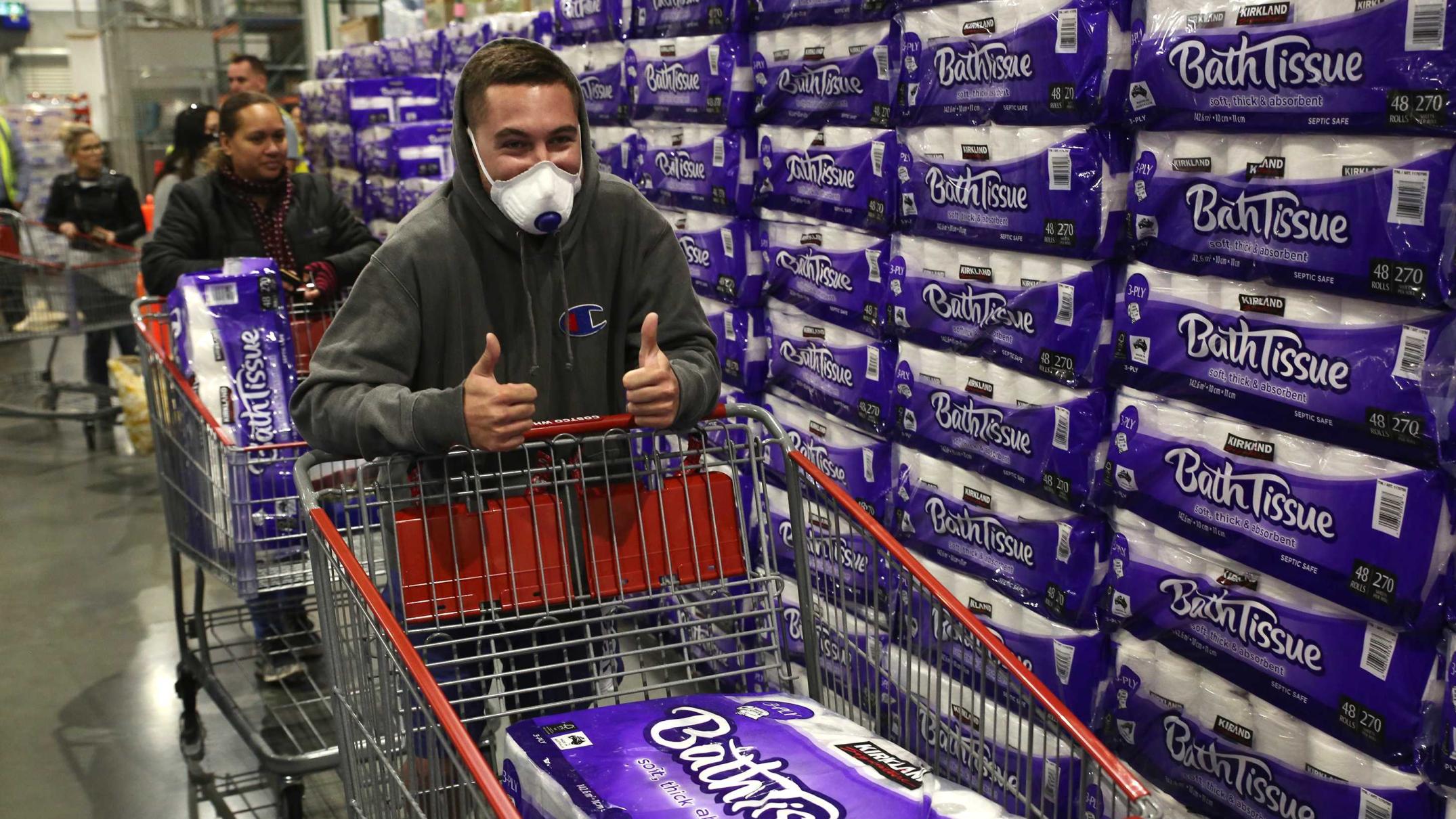Panic buying and an interest in sanitiser and sourdough bread recipes are among the strange consumer trends to emerge during the coronavirus pandemic.
Key points:
- Sourdough and sanitiser recipes were a major supermarket’s most searched items during the pandemic
- A study of consumers found 46 per cent care more about Australian-made since COVID-19
-
A major supermarket has seen a 33 per cent increase in fruit and vegetable sales to health-conscious consumers
Researchers are delving into the psychology of panic buyers and why they do it, as well as finding consumers are way more focused on country of origin than ever before.
Looking back almost 12 months ago, Woolworths Group’s chairman Gordon Cairns said the onset of the pandemic seemed to be “a lifetime ago”.
So, who panic buys and why?
Psychology of a panic buyer
Wendy Umberger is a professor of agriculture and food economics at the University of Adelaide, and her research is trying to answer those questions.
Her team measured this via a nationally representative study of consumer attitudes about food.
ABC News: Freya Michie
)The survey was conducted in June and again in December last year, and about 24 per cent of respondents admitted to panicked or “excess” buying habits.
“They had a fear of running out of food products, they’re people who really like to plan ahead and they also wanted not to have to go to the shops, because they felt if they went shopping, they had a higher chance of getting COVID,” Dr Umberger said.
Parents were also more probable panic buyers, according to Dr Umberger’s findings.
“The other interesting thing is that they have a high trust in the government. So, I guess if we were going to say messages, it would somehow be messaging from trusted aspects of the government,” Dr Umberger said.
“It’s not going to work for everyone and maybe it won’t work for toilet paper, but perhaps we might be able to look deeper at this data and see how we can avoid this happening in the future.”
Supplied
)Australian-made focus
One of the biggest consumer trends to emerge from the pandemic has been the increased focus and emphasis on country of origin, namely Australian and locally made products, according to Dr Umberger.
Dr Umberger said 46 per cent of consumers told researchers that Australian origin was of more importance to them since the COVID-19 pandemic.
“They’re just not sure they can trust food from other countries.
“Australian’s trust in our food system is really strong and really impressive.”
Woolworths found that 74 per cent of its 11.5 million weekly customers are placing an importance on “Australian made” products, according to Mr Cairns.
“Sixty per cent think that fruit and veg is the most important Australian-made category,” Mr Cairns said in his presentation at the Food Agility Summit 2021.
ABC South West: Zoe Keenan
)Turbocharged health and environment concerns
A focus on health and nutrition was also “turbocharged” during the pandemic, according to Mr Cairns.
He evidenced that by pointing to a 45 per cent increase in consumers eating home-cooked meals, 33 per cent eating more fresh fruit and vegetables, and a 60 per cent increase in plant-based protein sales.
Buying habits related to sustainability of products has also maintained a holding pattern, according to Dr Umberger, which she said was surprising.
“Environment was really starting to be of greater concern to Australia just before that Global Financial Crisis,” she said.
“After that financial crisis, it really wasn’t talked about at all until, really, the last few years.”
Despite new fiscal challenges facing many Australian consumers, Dr Umberger said environmental considerations were still “front and centre”.
There was also a change in the way people shopped.
Mr Cairns also noted a big increase in online food shopping and noted that hand sanitiser and sourdough recipes were Woolworths’ two most researched items.




